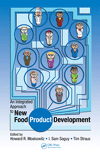The Institute of Food Technologists (IFT) issued a report earlier this year to the Food and Drug Administration (FDA) recommending guidelines that would establish a comprehensive product-tracing system to check movement of food products from farm to point of sale or service.
The recent Salmonella outbreak in eggs highlights a crucial need for an effective product-tracing system. So says the Institute of Food Technologies, adding that a product tracing system would make it possible to identify foodborne illness outbreaks earlier as well as contain the outbreak faster.
“Product tracing is a critical part of the food safety legislation that is currently under review because it serves to protect and improve the food supply, not only here in the United States but the throughout the global food system,” says Will Fisher, vice president of Chicago-based IFT.
Among other things, the recommendations include creating a standard list of key data or information to be collected, standardizing formats for expressing the information, identifying points along the supply chain internally and between partners where information needs to be captured and establishing comprehensive record-keeping that allows the linking of information both internally and with partners.
The FDA’s Center for Food Safety and Applied Nutrition commissioned IFT to conduct this study on traceability in the food system. Study authors, including experts from academia, industry and government, collected information from 58 food companies involved in produce, packaged consumer goods, processed ingredients, distribution, foodservice, retail and animal feed. The analysis incorporated a review of diverse product-tracing methods, practices in non-food industries and standards and regulations pertaining to traceability worldwide.
IFT experts proposed changes in current systems and practices to help track the movement of food products from farm to table to ultimately protect public health.
To view the report in its entirety, go to www.ift.org/traceability.
Related Articles
Related Products
See More ProductsSee More ProductsEvents
View AllSubmit An Event-
June 14, 2012 Building a Regulatory Strategy for Marketing Food Supplements in Europe: The key steps to a successful product launch
×
Get our new eMagazine delivered to your inbox every month.
Stay in the know on the latest snack and bakery industry trends.
SUBSCRIBE TODAY!Copyright ©2024. All Rights Reserved BNP Media.
Design, CMS, Hosting & Web Development :: ePublishing



